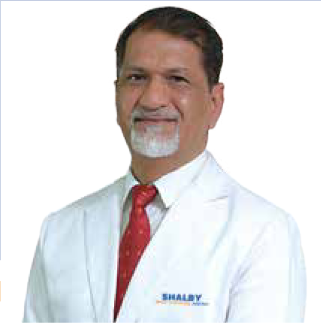 Book Appt.
Book Appt.
 Call Now
Call Now


Frozen shoulder is a painful condition in which shoulder movement is limited. Frozen shoulder is also known as adhesive capsulitis. Frozen shoulder happens when the strong connective tissue that surrounds your shoulder joint (known as the shoulder joint capsule) thickens, stiffens, and inflames. The joint capsule houses the ligaments that connect the top of your upper arm bone (humeral head) to your shoulder socket (glenoid), firmly anchoring the joint in place. This is generally referred to as a ball-and-socket joint.
The condition is known as a frozen shoulder because the more discomfort you experience, the less inclined you are to utilize your shoulder. Lack of use leads your shoulder capsule to thicken and tighten, making it even more difficult to move—it is frozen in place.
Symptoms
Healthcare providers categorize frozen shoulder symptoms into three stages:
Causes
Researchers are not sure why frozen shoulder develops. The problem develops when inflammation causes the shoulder joint capsule to thicken and constrict. Adhesions, or thick bands of scar tissue, form over time, and your shoulder joint loses synovial fluid. This makes it more difficult for your shoulder to move and rotate normally.
Risk factor
The following risk factors increase your chances of developing frozen shoulder:
Diagnosis
To diagnose frozen shoulder (adhesive capsulitis), your doctor will examine your symptoms and medical history. In addition, they will examine your arms and shoulders. They'll:
Your provider will most likely order shoulder X-rays to ensure that your symptoms are not caused by another shoulder disease, such as arthritis. Frozen shoulder is typically diagnosed without the use of advanced imaging procedures such as magnetic resonance imaging (MRI) or ultrasound. However, your provider may ask them to test for other concerns, such as a rotator cuff tear.
Treatment
Until the initial phase of frozen shoulder treatment is complete, pain management measures are typically used. If you can't regain motion on your own, you may need therapy or surgery. Here are some simple remedies for adhesive capsulitis:
If these noninvasive therapies do not alleviate your discomfort and shoulder stiffness after a year, your doctor may propose additional operations. These include anaesthetic manipulation and shoulder arthroscopy. Providers frequently combine these two procedures to achieve better results.
Prevention
You can lower your risk of frozen shoulder by beginning physical therapy as soon as possible following any shoulder injury that causes discomfort or difficulty with shoulder movement. Your orthopedic surgeon or physical therapist can tailor an exercise regimen to your unique requirements.
Conclusion
Frozen shoulder is a painful and frequently unpleasant illness that can impair your ability to carry out daily chores. While recovery may take some time, early intervention, physical therapy, and a combination of conservative treatments can greatly improve outcomes. Understanding the causes and symptoms of frozen shoulder, as well as effective treatment choices, can help you manage the disease and resume an active, pain-free lifestyle. If you are experiencing prolonged shoulder discomfort or stiffness, you should see a doctor for an accurate diagnosis and treatment. Visit SHALBY Sanar International Hospitals to learn more.
SHALBY Sanar International Hospitals provides extensive medical procedures backed up with our state-of-the-art technology and a team of highly qualified & experienced clinical experts.



Life Transformed: Mr. Blojah Felix Journey to Pain-Free Living | SHALBY Sanar

Pain-Free Living After 6 Years: Knee Replacement Success Story | Dr. Rohit Lamba

Bilateral Total Knee Replacement by Dr. Vikram Shah | SHALBY Sanar International Hospitals

Remarkable Recovery Story: Hip Replacement for Non-union Fracture

Incredible Recovery Story: Bilateral Knee Replacement Transformation

Knee Replacement Surgery by Dr. Rohit Lamba: 60-Year-Old's Remarkable Recovery

Renewed Hope: Successful Hip Replacement Surgery Transforms Iraqi Patient's Life

Exploring a Case of Revision Knee Replacement: Insights from Dr. Rohit Lamba

Triumphant Journey: Ms. Fatima, 69, Triumphs Over Revision Knee Replacement Surgery

Leaving the crutches behind – Riyaz, 43, gains confidence after a successful Hip Replacement Surgery

Transformative Total Knee Replacement Surgery: A New Lease on Life for 48-Year-Old Ramesh

Miraculous Recovery: 17-Year-Old Kenyan Overcomes Osteosarcoma with Mega Prosthesis Surgery

Mr. Omar Faruk's Remarkable Knee Recovery: ACL Reconstruction Success Story

Mrs. Vijay Luxmi's Remarkable Knee Replacement Journey

Umidjon, 36, from Uzbekistan shares his gratitude for a successful total hip replacement surgery

Ms. Mohsin from Iraq shares her gratitude for a successful Computer Navigated Total Knee Replacement

A Total Hip Replacement surgery gives Ms. Barry from Ghana, the ability to walk again.

Dr. Rohit Lamba talks about a successful Hip Replacement Surgery carried out on an Iraqi patient
Our doctors pen down their research findings and experiences from time to time. Their words provide deep insight into the latest techniques, technologies and other advancements in healthcare. It provides expert answers to all kinds of health questions for real-life issues.
VIEW ALL.png)
.png)



Since the day of its foundation, SHALBY Sanar International Hospitals is committed to provide comprehensive healthcare services. It regularly organizes awareness programs in its premises and encourages outdoor healthcare activities and camps with an intent to put focus on preventive healthcare.
VIEW ALL